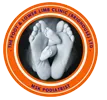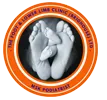
Achy Feet? Learn How Podiatry Care Can Help with Pain from Bunions, Corns, and Calluses
Foot pain is a common complaint, and it can affect anyone, regardless of age or activity level. For many people, issues such as bunions, corns, and calluses can cause discomfort and interfere with daily activities. While these conditions might seem like minor inconveniences, they can lead to significant pain and mobility issues if left untreated. Fortunately, expert care at a Foot Clinic in Brighouse can help manage and alleviate the discomfort caused by these foot problems, offering both short-term relief and long-term solutions.
In this blog post, we’ll explore what bunions, corns, and calluses are, how they cause foot pain, and how podiatry care can provide effective treatments to get you back on your feet without the pain.
What Are Bunions, Corns, and Calluses?
Before diving into treatment options, it's important to understand what bunions, corns, and calluses are and how they develop.
Bunions
A bunion is a bony bump that forms at the base of the big toe, causing the toe to lean towards the second toe. This misalignment can lead to pain, swelling, and difficulty wearing shoes. Bunions can develop over time due to a combination of factors, including genetics, footwear choices, and abnormal foot mechanics. High heels and shoes with narrow toe boxes can put pressure on the toes, contributing to the formation of bunions.
Symptoms of Bunions:
Pain or tenderness around the base of the big toe
Swelling and redness at the joint
Difficulty finding shoes that fit comfortably
A visible bump at the base of the big toe
Corns
Corns are thick, hardened layers of skin that typically form on the top or sides of the toes or the soles of the feet. They develop as a response to repeated pressure or friction, often caused by tight or poorly fitting shoes. Corns are usually smaller and more localized than calluses but can be equally painful due to the pressure exerted on the affected area.
Symptoms of Corns:
Small, raised, hard areas of skin on the toes or soles of the feet
Pain or tenderness when pressure is applied to the affected area
A hard centre surrounded by inflamed skin
Calluses
Calluses are similar to corns but typically form on the soles of the feet or heels. They are thicker areas of skin that develop as a result of repeated friction or pressure, often from walking or standing for long periods. While calluses are usually not as painful as corns, they can lead to discomfort if they become too thick or cracked.
Symptoms of Calluses:
Thickened skin on the soles of the feet or heels
A hard, rough texture that may crack or peel
Pain or tenderness if the callus becomes too thick
How Podiatry Care at a Foot Clinic in Brighouse Can Help
If you’re dealing with bunions, corns, or calluses, it’s essential to seek expert care at a Foot Clinic in Brighouse. A podiatrist can assess your condition, provide effective treatments, and offer long-term solutions to prevent future problems. Here’s how podiatric care can help relieve foot pain caused by these conditions:
1. Bunions: Professional Care and Treatment
Bunions can be both painful and unsightly, making it difficult to wear shoes or even walk comfortably. A podiatrist at a Foot Clinic in Brighouse can help with the following treatments:
Footwear Advice: Wearing shoes that provide enough room for your toes is key to preventing further irritation. A podiatrist can recommend shoes with a wide toe box or orthotic insoles that reduce pressure on the bunion.
Custom Orthotics: Podiatrists can design custom insoles to improve foot alignment and relieve pressure on the bunion, reducing pain and preventing the condition from worsening.
Padding and Taping: Padding techniques or taping the foot can help reduce pressure on the bunion and provide immediate relief.
Surgical Options: In severe cases where conservative treatments don’t provide relief, surgery may be necessary to remove the bunion and realign the toe. Podiatrists can assess the severity of the condition and discuss surgery as a last resort.
2. Corns: Removing and Preventing Future Issues
Corns can cause significant discomfort, especially when pressure is applied to them. A podiatrist can provide the following treatments to help alleviate corn-related pain:
Corn Removal: Podiatrists can safely remove corns by carefully trimming the hardened skin, providing immediate relief from pressure and discomfort. It’s important to have this done professionally to avoid causing damage to the surrounding skin.
Footwear Recommendations: Wearing shoes that fit properly and don’t cause friction is key in preventing corns from reappearing. A podiatrist can assess your footwear and provide recommendations to avoid further pressure on the toes.
Padding and Cushioning: Special pads or cushions can be used to protect corns from further friction, reducing pain and allowing the affected area to heal.
Protective Footwear: In some cases, a podiatrist may recommend specific footwear designed to reduce friction and pressure on the feet, helping prevent corns from forming.
3. Calluses: Soothing and Preventing Thickened Skin
While calluses are generally less painful than corns, they can still cause discomfort, particularly if they become thick or cracked. A podiatrist can provide effective treatments to manage and prevent calluses:
Callus Removal: Podiatrists can safely and effectively remove calluses by trimming the thickened skin, reducing discomfort and preventing further irritation.
Moisturising Treatments: If calluses are cracked or dry, a podiatrist may recommend moisturising treatments to keep the skin soft and prevent cracks that could lead to infection.
Foot Care Education: A podiatrist can educate you on proper foot hygiene, including how to care for calluses at home, preventing them from becoming a recurring issue.
Custom Orthotics: In cases where calluses are caused by abnormal foot mechanics, custom orthotics can help redistribute pressure across the feet, preventing the development of calluses.
Preventing Foot Pain from Bunions, Corns, and Calluses
Once you’ve received treatment for bunions, corns, or calluses, it’s important to maintain proper foot care to prevent these conditions from returning. Here are some preventive measures:
Wear Proper Footwear: Ensure that your shoes fit well and provide adequate support. Avoid shoes with narrow toe boxes or high heels, which can contribute to foot problems.
Maintain Foot Hygiene: Keep your feet clean and dry, and regularly check for signs of developing bunions, corns, or calluses. Early intervention can help prevent more serious issues.
Moisturise Regularly: Keep your feet moisturised to prevent dry, cracked skin that can lead to calluses and other foot issues.
Visit a Foot Clinic in Brighouse for Regular Check-ups: Regular visits to a podiatrist can help catch early signs of foot problems, ensuring that treatment is started early before the condition worsens.
Conclusion
If you’re tired of dealing with painful bunions, corns, or calluses, expert care at a Foot Clinic in Brighouse can provide the relief you need. A podiatrist can assess your condition, offer effective treatments, and help prevent future issues through proper footwear advice, custom orthotics, and ongoing foot care. Don’t let foot pain hold you back—schedule a consultation with a podiatrist today and take the first step towards pain-free feet.


